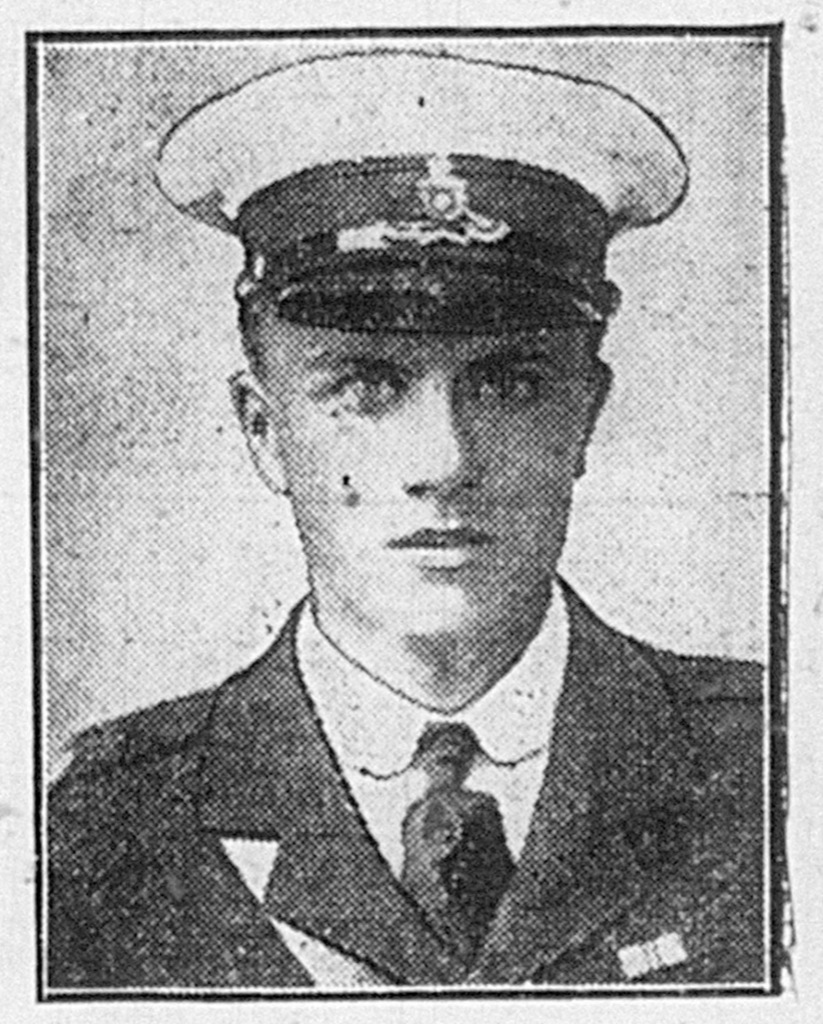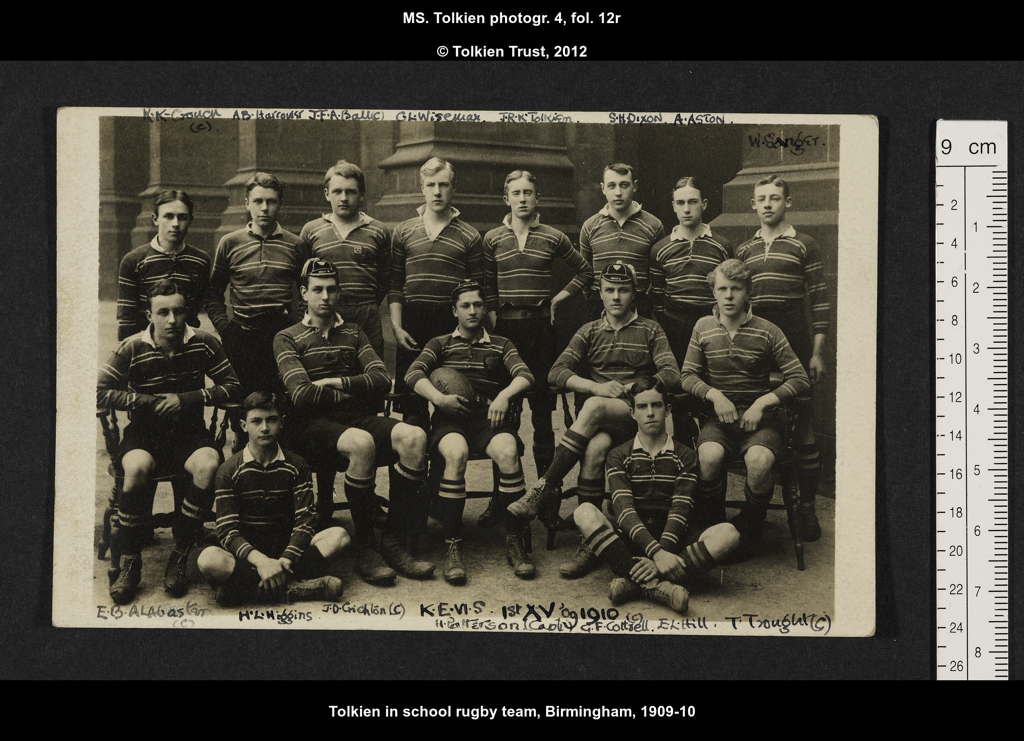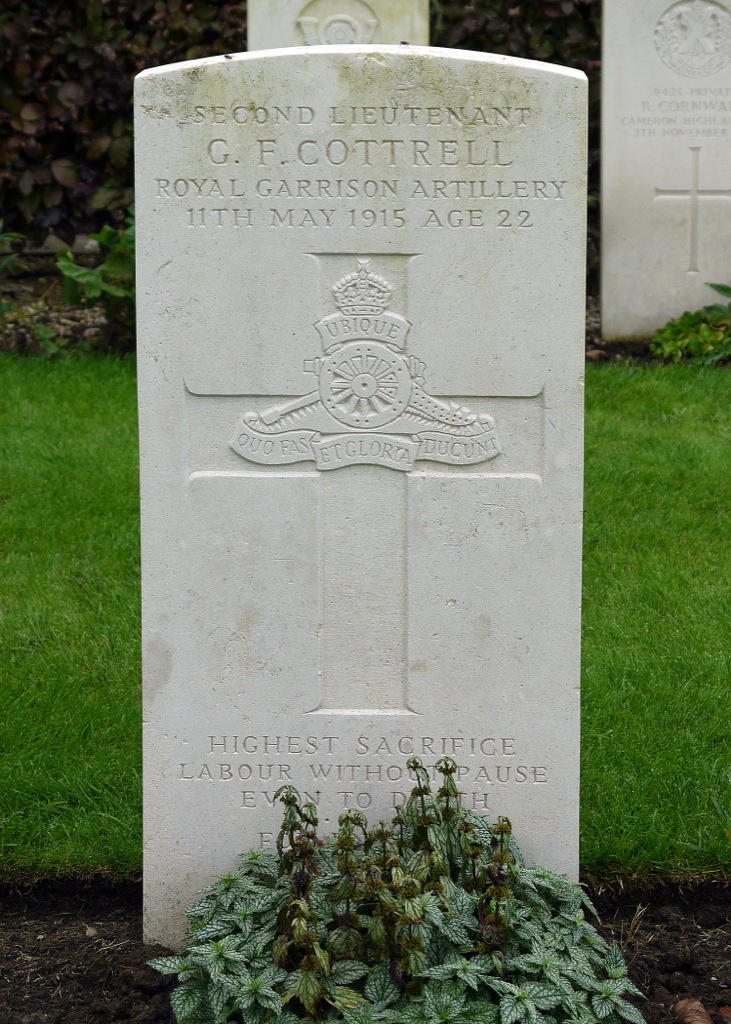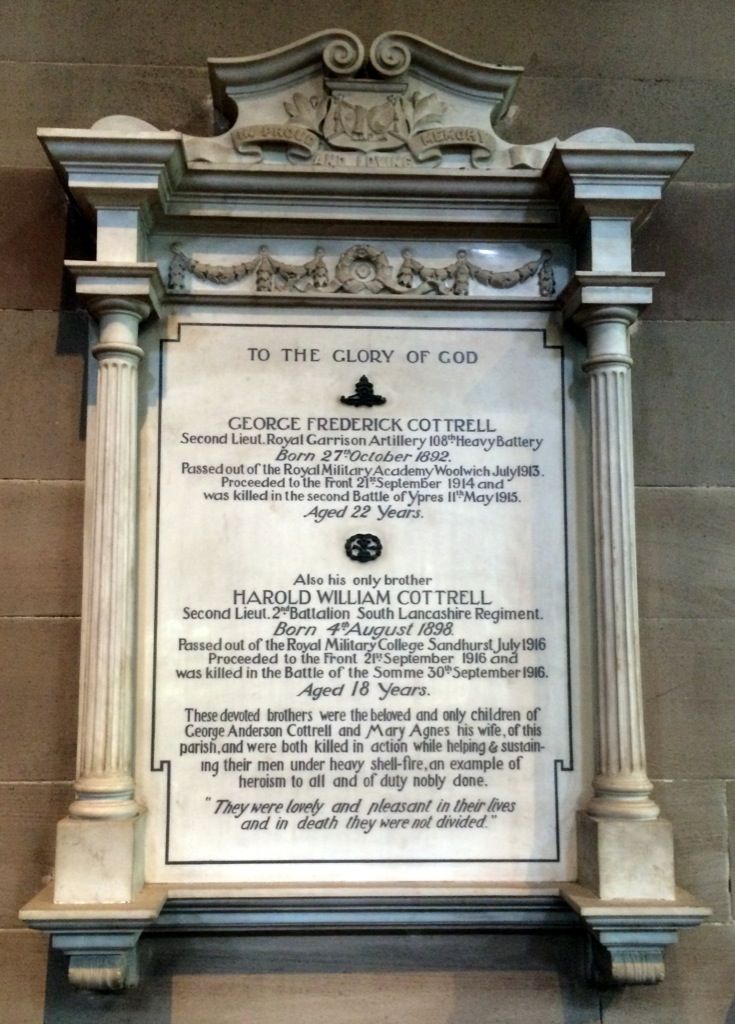George Frederick Cottrell, born on 27th October 1892, was admitted to King Edward’s School in September 1904, and in 1907, was awarded a Foundation Scholarship which he received until he left School in July 1911. George was the elder son of George and Mary Cottrell of 49, Sandon Road, Edgbaston. Mr Cottrell was the Secretary of a local chemical company. George’s younger brother, Harold, was also an Old Edwardian.
George was an active member of the School community. He played in the 1st XV throughout the years 1907-1911, captaining the team in the 1910-11 season, the year in which JRR Tolkien also represented the school. George is described in the Chronicle as a “brilliant and dashing forward … fast and clever in the loose, using his weight to great advantage in the scrum where he is an excellent hooker.” As Captain, he “inspired great confidence in the team by his energy and keenness.”
George was also an avid School cricketer, occupying the role of Cricket Secretary in 1909-10. He was a member of the Musical and Dramatic Society, and a Colour Sergeant in the School Officer Training Corps. At Speech Day in July 1911, George, together with several other boys including Tolkien, was awarded a Head Master’s Leaving Prize.
After School, George entered the Royal Military Academy, Woolwich, where as Senior Sergeant he won prizes for infantry training and military law. He received his commission in July 1913 and until the outbreak of war was stationed on the Isle of Wight.
In September 1914 he left for the Front, being attached to an ammunition column of the Indian Army before being posted to the 108th Heavy Battery, Royal Garrison Artillery in January 1915. George was killed in action by shell-fire near Ypres on 11th May 1915, aged twenty-two. At the time of his death he was keeping his men under cover. He was buried in a railed off piece of ground used as a war cemetery in the grounds of Chateau Goldfish, and was later moved to the Railway Chateau Cemetery. A stained glass window, subscribed for by his brother officers and friends, was placed in the church at Freshwater, Isle of Wight. He is commemorated on the Great War Memorial of St Augustine’s Church, Edgbaston, where his parents also paid for a separate memorial to George and his brother, Harold. The inscription reads: “They were lovely and pleasant in their lives, and in death they were not divided.”




.jpg)
.tif)
.jpg)

